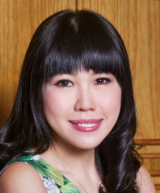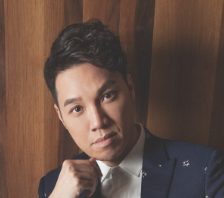
Melody Kwok-Chan is the director of corporate strategy and development at cosmetics retailer Sa Sa International Holdings Limited.
You spent a decade abroad. What brought you back to Hong Kong?
I attended high school in Canada for two years and then moved to Australia. I went to university in Melbourne, first studying marketing at RMIT and then earning my master’s in international business from Monash.
I’m a pretty independent person, but after eight years in Australia I started to feel homesick so I decided to move back to Hong Kong. I love everything about Australia – the food, the weather, the vacation spots – but career-wise Hong Kong is a better fit for me. Plus, my family is here.
Based on my experience, I would advise students to go abroad to learn about another culture firsthand. Experiencing it for yourself is much more meaningful than reading about it in a book or seeing it on TV. Looking back, I wish I could have studied in more countries and learned different languages.

Your parents founded Sa Sa nearly 40 years ago. Did you think you’d end up working for the family company?
I’ve had an interest in cosmetics ever since I was young and always dreamed of working in the beauty or fashion industry. I think that can be attributed to my parents’ influence and all the hours I spent in Sa Sa stores growing up. My parents occasionally let me sample the products while helping out at the shop. Cosmetics were practically my toys.
On top of that, after graduation I wanted to help reduce my parents’ workload, so I decided to complete the company’s management trainee programme. After that, I joined Sa Sa’s marketing department.

What does your role at Sa Sa entail?
I oversee marketing, product development and business plans. On the product side, I’m tasked with selecting the highest quality products for our stores.
I also monitor beauty trends. European and Japanese brands used to be the most popular, but customers now want Korean products.
On the marketing side, we organise a few major annual events, like the Sa Sa Ladies’ Purse Day, held in conjunction with The Hong Kong Jockey Club.

How has Sa Sa grown over the years?
The first Sa Sa store was in a basement and measured only 40 sq.m. There were two employees: my mom and dad. As the first male consultant at Sa Sa, my dad quickly learned the value of his opinion. When my dad told a customer that a certain shade of lipstick looked beautiful on her, she almost always bought the product. Now you can see many male beauty consultants in our stores.
My parents then opened their second shop in Causeway Bay, right beside Sogo. From there, Sa Sa continued to grow. We now have about 60 shops in mainland China, 100 in Hong Kong and more than 280 altogether in Asia.

To what do you attribute Sa Sa’s success?
I think it all boils down to our products and service. We stress the importance of quality and train our staff to provide excellent customer service. Our beauty consultants undergo nearly 260 hours of training, enabling them to provide personalised beauty advice to our customers.
How did you get involved with the Hong Kong Girl Guides Association?
My mom is also a member, so I learned about it through her involvement. I love having the opportunity to work with teenage girls. I created a cosmetics course for the girls to learn how to look professional and put-together when they enter the workforce.
I also helped establish Sa Sa’s first charity platform – the Sa Sa Making Life Beautiful Charity Fund – in 2013. It has been helping young people build self-confidence and spread positive energy throughout the community.

Do you have a role model?
It would have to be my parents. They started Sa Sa in 1978 when it was just a tiny shop in Causeway Bay and transformed it into the first cosmetic one-stop shop in Hong Kong. My mom is extremely detailed, while my dad is adept at managing a business. They’ve taught me so many important lessons, and I’m still learning from them.
Thank you.
Interview: Emily Petsko
For the full article, please check out the latest issue of Gafencu’s print magazine or the Gafencu app. Download the app from the Google Play Store or Apple App Store









